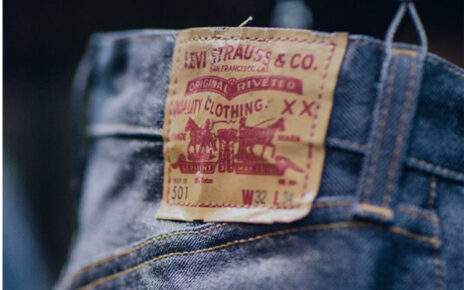Leading global organisations have come together to join hands for ‘Fashion for Good’ – a first-of-its-kind consortium project. Named ‘Full Circle Textiles Project – Scaling Innovations in Cellulosic Recycling’, the initiative aims to investigate economically viable and scalable solutions for cellulosic chemical recycling. This is to enable a closed loop system to convert textile waste to produce new man-made cellulosic fibres.

Katrin Ley, MD – Fashion for Good says: “A bold approach is needed to identify and scale innovations that drive sustainable change in the fashion industry. This multi-stakeholder consortium addresses the most important barrier to scaling innovation and sets precedence for all industry players with ambitions for disruptive innovation to follow.”
Laudes Foundation, Birla Cellulose, Kering, PVH Corp. and Target are part of Fashion for Good movement to explore disruptive solutions. The goal is to create new fibres and garments from used clothing and ultimately drive industry wide adoption. The initiative is triggered by the fact that 73% of used clothing either lands in garbage or is burnt, and new clothing is made using less than 1% of recycled sources.
“Next generation solutions are the path to meeting the climate and biodiversity targets that scientists are calling for by 2030. We have seen promising momentum in recent years as we have worked with brands, producers and innovators to build strong market demand and have identified a great pipeline of game changing technologies. Now we need investment and broad industry adoption to make these Next Gen Solutions a commercially available reality,” elaborates Nicole Rycroft, Founder & Executive Director, Canopy.
One of the key focuses of Fashion for Good is textile recycling as a crucial lever in driving the fashion industry towards closed loop production. A systemic change towards circularity will ultimately reduce the environmental impact of textile waste and potentially eliminate dependence on virgin materials almost entirely. Producing man-made cellulosic fibres through chemical recycling can help preserve endangered forests and other finite resources.
Anita Chester, Head – Materials, Laudes Foundation (formerly C&A Foundation) adds: “Chemical recycling faces multiple barriers to scale and industry adoption. A key barrier is risk-tolerant investment for innovations that can enable testing, refinement and scale. We hope that our investment in the Full Circle Textiles Project will enable wider adoption and catalytic investment across the industry to map the course of change together.”
Innovators including Evrnu, Infinited Fiber Company, Phoenxt, Renewcell and Tyton BioSciences will collaborate with the project partners over the next 18 months to validate the potential of their technologies in the still nascent market.
Birla Cellulose will recycle the materials produced by four of the innovators at its state-of-the-art pilot plants to produce high quality cellulosic fibres.
“The need of the hour is to co-create sustainable solutions for the fashion industry that can be scaled rapidly and economically,” shares Dilip Gaur, Business Director – Birla Cellulose, Aditya Birla Group.
Infinited Fiber Company produces industry-ready fibre which will be delivered directly through the project partner’s supply chains for garment production. The Project will provide an assessment of the innovator’s environmental impact, technologies, recycled output and subsequent garments. These results, along with the key learnings, will determine how best to support and scale the ‘promising’ solutions.
Based in Amsterdam, Fashion for Good is looking at expanding the programme to South Asia. Promising start-up innovators can receive expertise and funding from Fashion for Good’s global accelerator programme.





